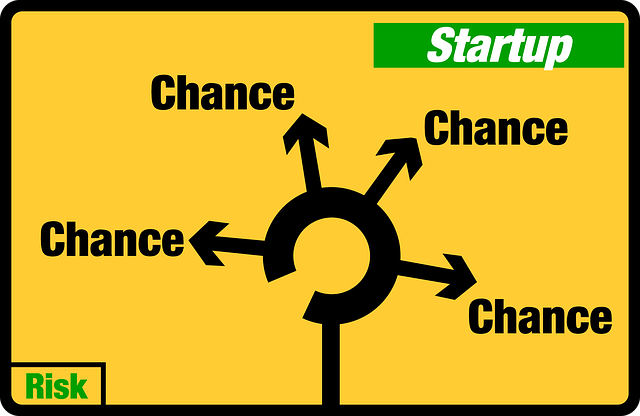5 Startup Marketing Tips That Work!
Most of our clients are business starters and entrepreneurs who are having a hard time promoting their brand. Some of them are at the end of their ropes, having spent so much for tactics that didn’t fail them but also broke their bank.
We won’t lie to you. Marketing is still challenging, at times off-putting. The Internet has made it easier, though. We think it actually offered an opportunity to small business entities to compete with the bigger ones. It offers so many opportunities. You can start a blog for your business. You can create a Facebook page for it. You can put photos of your products on Instagram. You can tweet about your event. You can post demos on YouTube.
Finding advocates and influencers is much easier on the Internet, particularly on social media. There are also a number of ways to implement influencer marketing approaches.
These are just some of the reasons why digital marketing has, for a huge part, superseded traditional marketing.
When people tell us it’s utterly impossible to start a business and be on top, we tell them that the underdogs actually have an edge to the old and established brands. That’s something we will tackle in another article.
This time, we want to tell you important tips for startups.
1. Do SEO
Even in the advent of social media, most buyers still rely on search engines to look for brands, businesses, products, or services. Eight in ten shoppers start their purchases with a search. In addition, nearly 39% of e-commerce traffic comes from search.
Search engine optimization is still a reliable means of putting your brand out there using the right keywords. The strength of SEO comes from how we understand consumer search behavior. Consumers look for information and solutions using keywords. They rarely write in complete sentences. Generally, they are looking for “the best beach resorts in Miami” or “Houston Locksmiths.”
What you do is find out what keywords they use to look for brands like yours or solutions to problems in your industry or niche. Keyword research helps you seek this information. Once you find the keywords, build content around them. Google will index your content. If it appears on the first page of search results, people will easily find you.
SEO is daunting because it takes time to work. It takes time to organically raise your site’s PR. It takes weeks of writing content and generating healthy links.
2. Write awesome content
We always tell clients the sheer value of content. You have probably heard the popular adage: Content is king. We think it still is despite the seeming shift towards social media in marketing. We still do content marketing because it is essential to other marketing activities we do, like social media and influencer marketing. How can you deliver your brand’s message without content?
Generating content is easy. The challenge is to provide content that is relevant to your audience. Initially, you have to ask what your audience is looking for. Again, you go back to keyword research. You can also fish out questions from your social media pages. Check out the comments. Write content around these questions. You can also create videos, which are after all part of your content pool.
Remember, Google’s algorithms favor unique and quality content. The quality and relevance of your content largely determine your search rankings.
3. Cultivate relationships
The common mistake we observe in marketers is they are too focused on the technical aspects of the job. They forget what really matters — connection. You can connect to people by communicating with them. That’s for certain. But a lone email doesn’t build a meaningful connection. Even ten won’t. Even getting people to like your business page doesn’t necessarily build relationships. You have to get to them and talk to them like they are your friends and family.
Building a relationship is often neglected in the process. We can’t blame marketers really. They’re too engrossed in the data. They’re preoccupied with chasing results. They want to sell. After all it’s the sales that matter. However, we argue that relationships are more relevant than sales. One-time sales aren’t hard to do. It’s not hard to convince people to try your product. What’s hard is to make them come back. From a product development perspective, the way is to create a product that people actually need and later on adapting the product to the changing needs of consumers — to put it simply. From a marketing perspective, the only way for them to do that is by cultivating relationships with them through meaningful connections.
Don’t just send them an email? Show concern. Don’t treat them like your audience or customers. Treat them like your family or friends. Ask about their day. Talk to them. Know their concerns relevant to your niche. Listen to their complaints and respond to them. Assure them you’re actively paying attention.
In fact, don’t build a following. Build a community.
4. Build brand advocacy
It seems a far-fetched idea. It’s like a tall dream. But the thing is, brand advocacy is often a result, not a process. Once you established a solid relationship with your audience and customers, brand advocacy almost follows naturally. Your brand advocates are people who aren’t only loyal customers but also your word-of-mouth marketers. Sure, a customer has quite a few connections and insignificant marketing mileage. But think of a hundred of these tiny voices speaking about and for your brand. You have people who carry your brand’s message across the social media as well as those who offset bad reviews about your product.
5. Partner with influencers

More companies are replacing advertisers with influencers because fewer consumers are paying attention to the former. Influencer marketing seems a new thing, but it’s basically similar to word-of-mouth marketing in a sense that you’re effecting people to deliver your brand’s message to their own audience. That means an influencer is someone who is not an advertiser or a paid endorser but does the marketing on your behalf.
The reason influencer marketing rocks is because we understand the sheer value of trust in today’s online marketing approach. People don’t trust advertisers anymore. But they trust someone with thousands of followers who keeps them in the loop with interesting, informative, and fun posts. Occasionally, these people talk about certain products and services they’ve used or procured and pass on the information to their audience, effectively promoting them either consciously or inadvertently.
However, finding an influencer is a difficult task. You can approach one and be straightforward about needing their help. Or you can let your content work for you, but this takes a long time, and you have to be lucky enough for someone pertinent to actually notice your content and share it with their own followers. That’s actually where we can step in!
Finally, it’s your responsibility to see if what you’re doing works. Giving you advice is what we love to do, but each business is different. So if something doesn’t work for you, maybe you should change how you do it or stop doing it altogether. Don’t hesitate to ask our help.








